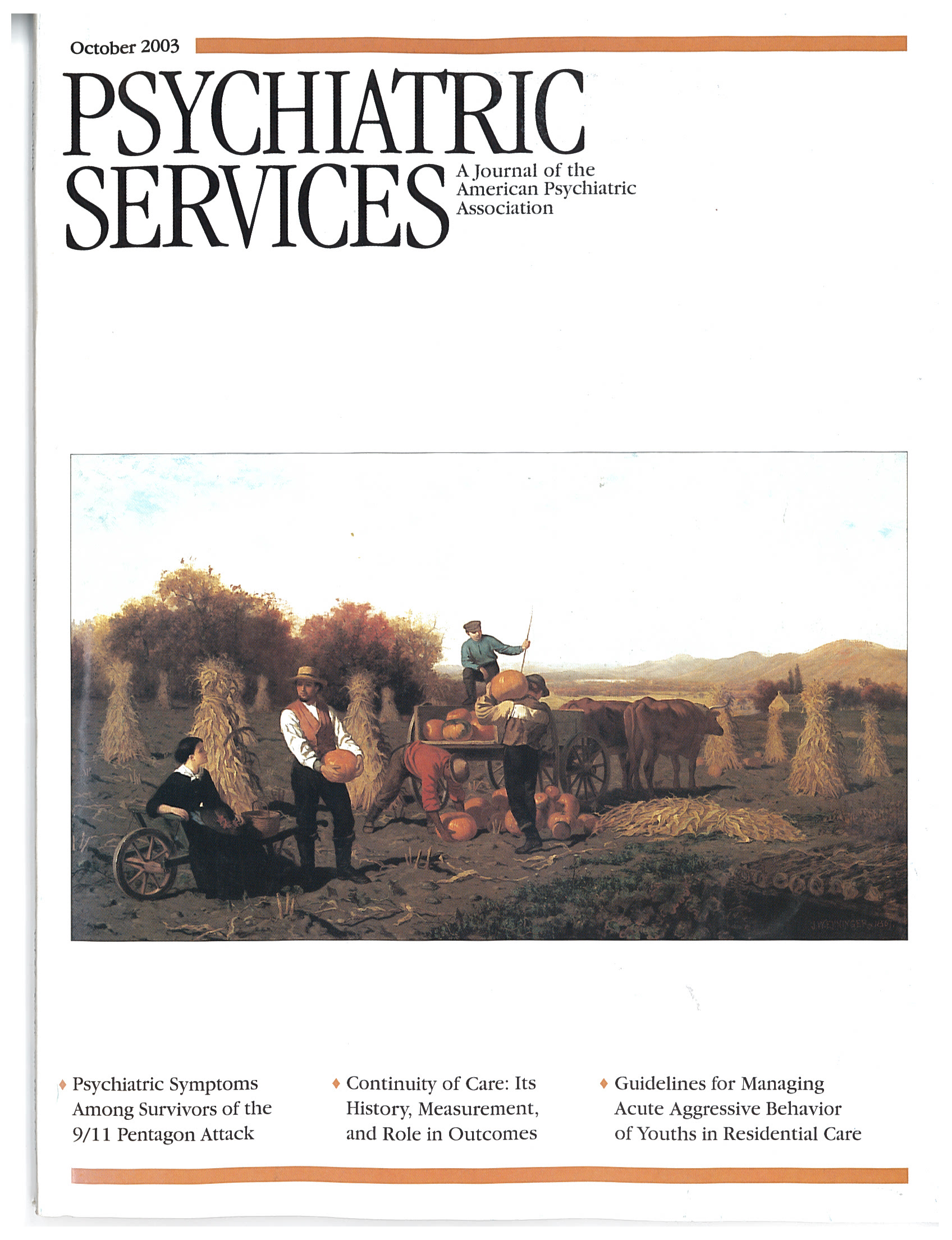Benzodiazepine Use and Abuse Among Patients With Severe Mental Illness and Co-occurring Substance Use Disorders
Abstract
OBJECTIVES: Because use of benzodiazepines may exacerbate existing substance use disorders or become abused substances, prescription of benzodiazepines for patients with severe mental illness (schizophrenia or bipolar disorder) and co-occurring substance use disorders (abuse or dependence) is controversial. The authors examined benzodiazepine use and associated psychiatric, substance abuse, and institutional outcomes in a six-year longitudinal study of patients with co-occurring disorders. METHODS: At baseline and yearly follow-up for six years, 203 patients with co-occurring severe mental illness and substance use disorder were prospectively assessed for medication use, substance use, psychiatric symptoms, use of hospitalization, and quality of life. RESULTS: Almost one-half of the patients (43 percent) reported taking prescribed benzodiazepines at the time of at least one assessment. Patients taking prescribed benzodiazepines were more likely to have high scores on measures of overall symptoms and affective symptoms (anxiety and depression) and low ratings for general quality of life throughout the study. Benzodiazepine use was unrelated to remission of substance use disorder or hospitalization, but a greater proportion of patients who were prescribed benzodiazepines developed benzodiazepine abuse, compared with those who were not prescribed benzodiazepines (15 percent compared with 6 percent). CONCLUSIONS: Prescription benzodiazepine use was common among patients with co-occurring severe mental illness and a substance use disorder and was not associated with any of the measured outcomes other than increasing the likelihood of benzodiazepine abuse. Physicians should consider other treatments for anxiety in this population.



